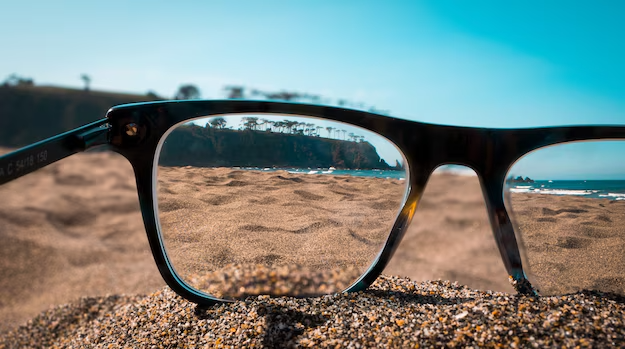Polarized sunglasses are more than just a stylish accessory; they offer significant benefits that enhance visual clarity and protect your eyes. By filtering light and reducing glare, these specialized lenses provide a range of advantages for various activities. This article will delve into the key benefits of polarized sunglasses and why they are a worthwhile investment for your eye health and comfort.
What Are Polarized Lenses?
Polarized lenses are designed to reduce glare from reflective surfaces. This is achieved through a special coating that blocks horizontal light waves, which are responsible for most glare. When light reflects off surfaces like water, snow, or pavement, it often becomes polarized, creating intense, blinding glare. Polarized lenses have a vertical filter that allows only vertical light to pass through, significantly reducing glare and improving visual comfort. This technology not only enhances clarity but also makes outdoor activities more enjoyable and safer.
Glare Reduction and Visual Comfort
One of the primary benefits of polarized sunglasses is their ability to reduce glare. Glare from reflective surfaces can be not only annoying but also dangerous, particularly for drivers and outdoor enthusiasts. By cutting down on glare, polarized lenses help improve visual clarity and contrast, making it easier to see details and reducing eye strain. For instance, when driving, polarized sunglasses can help you see the road and other vehicles more clearly by minimizing the blinding effects of sunlight reflecting off the road. Similarly, for water sports enthusiasts, polarized lenses can reduce glare off the water's surface, enhancing safety and performance.
Eye Protection and Health
In addition to reducing glare, many polarized sunglasses also offer UV protection. Exposure to ultraviolet (UV) rays from the sun can lead to serious eye conditions, such as cataracts and macular degeneration. Polarized lenses with UV protection help shield your eyes from harmful UV rays, thus reducing the risk of these eye diseases. By investing in polarized sunglasses, you are not only enhancing your visual experience but also protecting your long-term eye health. This dual benefit makes polarized lenses a practical choice for anyone spending time outdoors.
Safety and Performance Enhancement
Sunglasses polarized Lenses can play a crucial role in improving safety and performance in various activities. For drivers, the reduction of glare can lead to better road visibility and reduced risk of accidents. Similarly, in sports like skiing or fishing, polarized lenses enhance visibility by cutting through glare, allowing for better performance and reducing the chance of accidents. The clarity and contrast provided by polarized lenses can make a significant difference in both everyday tasks and specialized activities, making them a valuable addition to your gear.
Choosing the Right Pair
While polarized sunglasses offer numerous benefits, it's essential to choose a high-quality pair to ensure you get the most out of them. Consider factors such as lens quality, UV protection, and the frame's fit and style. High-quality polarized lenses should provide effective glare reduction and clear vision without distortion. Additionally, it's important to note that polarized lenses might affect the visibility of some digital screens, so if you rely heavily on devices like smartphones or GPS units, test the lenses before purchasing. Investing in a reputable brand and proper fit will ensure you enjoy all the advantages polarized sunglasses have to offer.
Conclusion
Polarized sunglasses provide a range of benefits that go beyond just style. They offer superior glare reduction, enhanced visual comfort, and vital eye protection, making them a practical choice for various activities. By understanding the advantages of polarized lenses, you can make an informed decision about incorporating them into your daily routine. Whether for driving, outdoor sports, or general sun protection, polarized sunglasses are a worthwhile investment in both your visual experience and eye health.





Comments